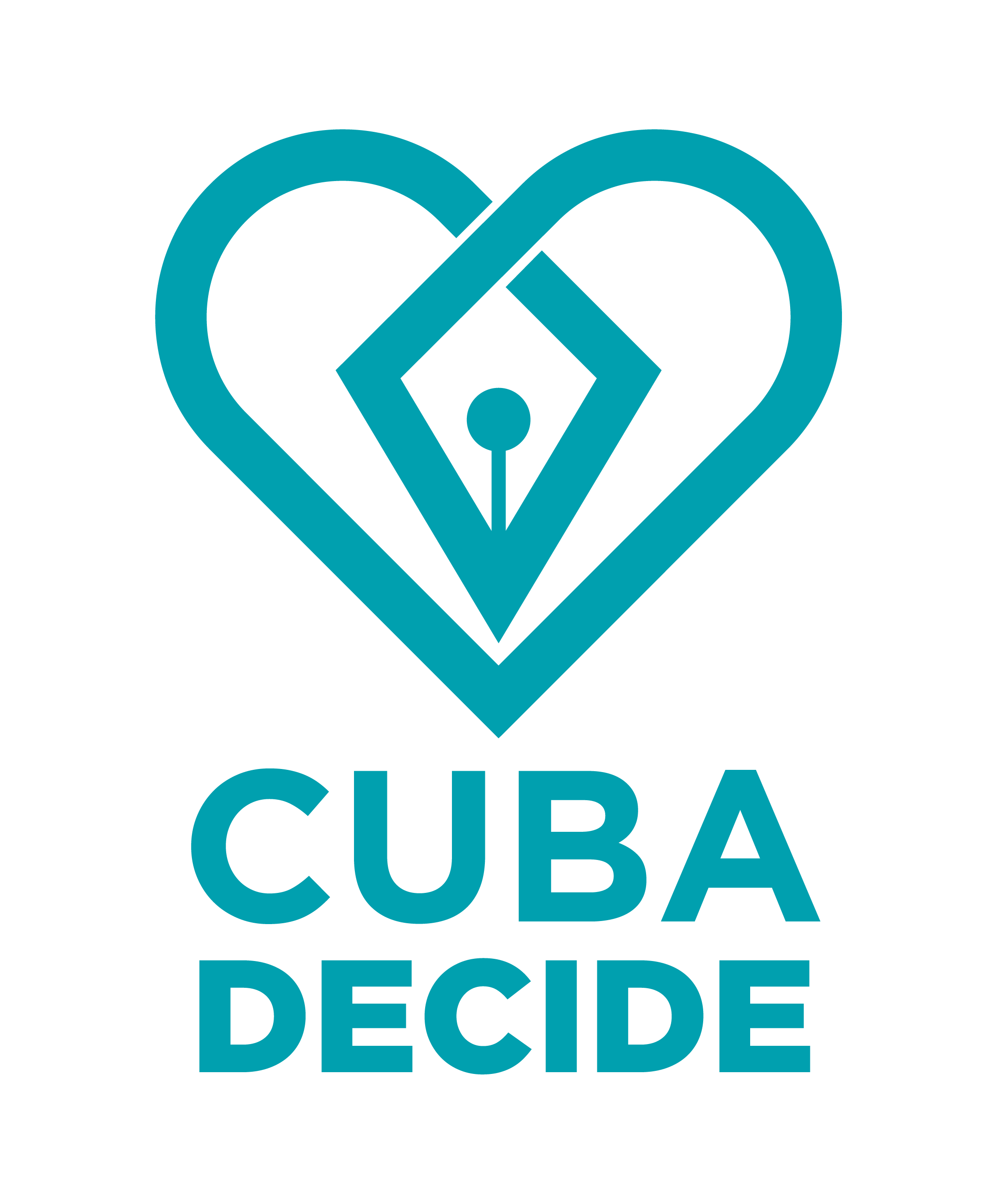Esta web utiliza cookies para que podamos ofrecerte la mejor experiencia de usuario posible. La información de las cookies se almacena en tu navegador y realiza funciones tales como reconocerte cuando vuelves a nuestra web o ayudar a nuestro equipo a comprender qué secciones de la web encuentras más interesantes y útiles.
Main contradictions of the new constitution approved by the National Assembly
Principales contradicciones del proyecto constitucional del Partido Comunista de Cuba aprobado por la Asamblea Nacional
3 abril, 2019Cuba Decide se suma al llamado de Ni1+ (Videos)
3 abril, 2019The process of constitutional reform that takes place in Cuba is flawed because it is not born from the sovereign decision of the citizens, but comes from a commission formed by the Communist Party of Cuba and led by Raúl Castro. The members of the National Assembly and its directors do not represent the Cuban people because they are not nominated or elected in free, fair and plural elections. The whole process hijacks from the beginning the constituent power that only the people possess and that has been taken from them.
In turn, the text of the reform is contradictory and explicitly violates first generation human rights. Art. 3recognizes that “In the Republic of Cuba sovereignty resides with the people and it is nontransferable, and from the people emanates all the power of the State”. However, Art. 5 establishes that the «superior leadership force of society and of the State” is the Communist Party and not the citizenry. In addition, the socialist (one-party) system is declared as «irrevocable» in Art. 4 and perpetual in Art. 229, where it forbids the people and all future generations to change «the pronouncements on the irrevocability of the socialist system».
Articles 4, 5 and 229 also contradict the international commitments that the Cuban State assumed when adopting, together with 170 other countries, the Vienna Declaration of 1993, which states that «democracy is based on the will of the people, freely expressed, to determine its own political, economic, social and cultural regime, and in its full participation in all aspects of life «. This declaration is the reference used by the European Union that shapes the Agreement of Dialogue and Cooperation that it maintains with Cuba.
Even more sinister is the explicit threat against all human rights defenders and citizens in general who work in favor of a change of the system. Article 4 grants as a ‘citizen right’ the right «to fight by all means, including armed force, when no other recourse is possible, against anyone who attempts to overthrow the established political, social and economic order» (the latter being mentioned in Art. 5 and others). This directly endangers all the opposition and the promoters of the citizen initiative Cuba Decide. Cuba Decide proposes the realization of a binding plebiscite so that citizens can, through voting, change the single party system by a democratic and multiparty system.
The term plebiscite is included for the first time in history in the text of the new constitution, and it is mentioned a total of four times; indicating a direct response to Cuba Deicide’s proposal for a plebiscite. A plebiscite is described in the glossary as «a direct consultation aimed at knowing the approval or disapproval about a certain political or governmental act or measure». This is an attempt to convert the plebiscite into a survey, removing its binding character. Nevertheless, the proposal of Cuba Decide continues to be to comply with the sovereign will of the people, and to demand that the citizens be asked about the realization of free, fair and multiparty elections. Initiating in this way an orderly and legitimate transition process that will require, among other steps, the valid entry of transitory laws that respect human rights and allow for effective citizen participation.
Many of the violations incurred in the text of the constitutional draft are also present in the current Constitution. Therefore, the constitutional referendum of February 24 leaves the Cuban people without the possibility of rejecting the one-party system or its irrevocable status.
Pronouncement
The National Assembly established in Cuba announced that it will submit the new constitution to referendum on February 24, 2019. Process that unavoidably requires the full and effective exercise of human rights and democratic practices.
- The freedom to campaign on equal terms for the supporters of all options, in the full use of freedom of expression and association.
- Equal access to the census, the electorate and the media, even those that are state owned or controlled by the same;
- The independence and impartiality of the electoral body in charge of organizing the process, so that all the votes are counted in a precise, fair, egalitarian and transparent manner;
- The presence of national and international observers in all stages of the process.
To date, the Cuban authorities have not complied with or facilitated the execution of the following minimum conditions in order for the realization of this binding popular consultation to be free and credible:
As a consequence, we warn that the referendum that will take place in Cuba on February 24th is not legitimate because it does not comply with the minimum requirements. We cannot recognize the results of this process because they do not represent the sovereign will of the citizenry.
By this means we offer our willingness to accompany Cuba on its sovereign path towards the rule of law, democracy and freedom, and we invite the international community, the various governments, institutions and multilateral organizations to join this initiative.

